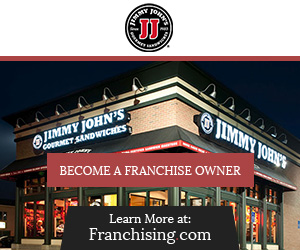Don't overlook property taxes, the biggest expense in most businesses
Despite all of the attention recently focused on income taxes, it is the property tax that is the biggest expense in most businesses - and the most difficult to manage. According to the Council on State Taxation, a Washington, DC, think tank, American businesses shell out more on property taxes than for any other type of state or local taxes.
While the problem of property taxes is multiplied for operators with many locations, it is not only those businesses that own their business property that have been impacted by skyrocketing property taxes; tenants, too, have felt the bite of those levies. Regardless of whether property taxes are paid directly by a tenant or included in a lease, those taxes represent a significant amount.
Property taxes, all too often treated as 'fixed' costs, have long been ignored as a source of savings by business owners. However, the potential for major savings exists in this area because those property taxes are levied in thousands of jurisdictions, with many property owners told only what to pay, not how the tax bill was computed. And remember, if you can get them reduced, the savings generally remain effective year after year.
The System
We tend to assume that all property is valued uniformly and taxed at a uniform rate in each taxing jurisdiction. Local governments in all 50 states and the District of Columbia rely on rules established by their state constitutions and laws. Although most state constitutions require uniformity, in practice, no two states have identical property tax systems. In fact, in some states, rules are left to the discretion of local governments so that the system is not even uniform across the state.
With more than 14,000 property tax systems, it is little wonder that so little is known or understood about this tax. Factor in the large numbers of inexperienced officials within many of those systems charged with the task of placing a value on the properties within their jurisdictions, and the result is a chaotic, little-understood tax.
Armed with a few facts about their operation's property, it is relatively easy for any multiple-unit franchisee to review each of their property's records in the tax assessor's office at each location. Such records are public domain and, as such, are available to everyone. Most tax assessors elected or not, are eager to cooperate and usually willing to correct any errors detected and brought to their attention.
Renters Pay Taxes Too
Some multi-unit franchisees own little or no property. However, just because the business rents its stores, facilities, or office space does not mean that property taxes can be ignored. In the Northeast, for example, studies show that property taxes range from 15 to 25 percent of the total rent for most businesses.
Renovations, either by the building's owner or a tenant, often lead to an increase in property taxes. The cost of major renovations or alterations made at the request of a tenant is often amortized through the rent - especially if the property owner borrowed to finance the work.
In many cases, the taxing authorities assess buildings based on income stream, without consideration of a property owner's debt. Far better for many franchisees/tenants is to negotiate rent for the business property "as is" and work out some form of third-party financing for renovations. Although few franchisees/tenants want to use their capital, this strategy should be weighed against the fact that higher rent could have an impact on the taxes.
Reducing The Bite
In most states, the basic starting point for determining the property tax 'base' is all real and personal property, both tangible and intangible. Real property usually refers to land and anything permanently attached to it. Personal property includes anything that is the subject of ownership not permanently affixed to or a part of real property.
Fortunately, in no state does the tax base encompass all real and personal property. Illinois and Iowa, for example, include only real property in their tax bases and most states exclude intangible property. Florida, Kentucky, and Missouri are among the exceptions that tax intangibles such as patents, trademarks, copyrights, brand names, franchise agreements, and licenses.
Among the states that could constitutionally tax all real and personal property, none does. Instead, various means are employed to remove property from the tax base. Certain types of property are granted full or partial exemption based on characteristics of the property and/or its owner. In some states different types of property are assessed differently or taxes at different rates.
Thus, the first question every franchisee should be asking is whether their various properties should be taxed and, if so, are they taxed at the proper tax rate?
Fighting The Property Tax Assessment
All property taxes are considered "Ad Valorem" taxes. That is, taxes that are based on the value of the property. Since so many variables enter into the equation, it is rare that the assessor and the property's owner will agree on a value.
Armed with a few facts about the property, it is relatively easy to review the tax assessor's record. Such records are, after all, public and, as such, are available to everyone. Tax assessors, whether elected or appointed to their position, are usually eager to cooperate in correcting blatant errors.
And, boy do those errors exist. Two-story buildings where only a one-story building stands, a two-hundred-foot deep building on a lot only 75 feet deep, basements where none exist, parking lots that are really on a neighboring property. The list of errors is virtually endless. However, the multi-unit operator will never know whether errors exist that have increased their property's valuation unless they check.
Math errors and mistakes in the property's measurements, construction materials, roof type and conditions are quite common and quickly corrected by the property tax assessor on the spot - if brought to that assessor's attention.
If the assessor cannot or will not correct errors discovered on the assessment record or if the area developer challenges assessments on the ground that it is not comparable to other, similar properties, the matter is usually presented to a local appeal review board. In some jurisdictions, it may be necessary to complete and submit a formal complaint and appeal form in order to go before the local review board.
Should the assessor turn a deaf-ear to the franchisee's request to correct any errors and if the local property tax review board denies a request for a lower valuation, the next step is to present the case to the state board of appeal. Finally, in those rare instances where these steps have failed, the entire matter may be taken to court.
Obviously, no one should challenge their property tax assessment without a clear-cut case. After all, no one wants to open up a Pandora's Box. Fortunately, there are a number of very good consultants to help reduce local property taxes. Many of them will work entirely or largely on a contingency basis. There are also attorneys - known as 'certiorari', or property tax protest attorneys - who provide such services.
Finally . . . .
Few of us think about property taxes. Some may check calculations prepared by the assessor to ensure the property tax bill is error free. Is that assessment in line with similar properties, has the property been properly identified or, indeed, is that assessment upon which the annual property tax bill is based, actually based on the franchised operation's property?
Compounding the problem, generally accepted accounting principles require businesses to value property at an amortized historic cost. Property taxes are based on fair-market value, which as everyone knows, can vary depending on who is doing the calculation.
Several years ago, a major study revealed that few major, Fortune-500 companies bothered to challenge the assessment on their properties. However, according to that study, almost nine of 10 companies that did challenge their property tax assessments were successful. Is the property tax assessment on all of your franchised business's properties correct?
Share this Feature
Recommended Reading:
FRANCHISE TOPICS
- Multi-Unit Franchising
- Get Started in Franchising
- Franchise Growth
- Franchise Operations
- Open New Units
- Franchise Leadership
- Franchise Marketing
- Technology
- Franchise Law
- Franchise Awards
- Franchise Rankings
- Franchise Trends
- Franchise Development
- Featured Franchise Stories
FEATURED IN

Multi-Unit Franchisee Magazine: Issue 2, 2007

$400,000
$550,000





 The multi-unit franchise opportunities listed above are not related to or endorsed by Multi-Unit Franchisee or Franchise Update Media Group. We are not engaged in, supporting, or endorsing any specific franchise, business opportunity, company or individual. No statement in this site is to be construed as a recommendation. We encourage prospective franchise buyers to perform extensive due diligence when considering a franchise opportunity.
The multi-unit franchise opportunities listed above are not related to or endorsed by Multi-Unit Franchisee or Franchise Update Media Group. We are not engaged in, supporting, or endorsing any specific franchise, business opportunity, company or individual. No statement in this site is to be construed as a recommendation. We encourage prospective franchise buyers to perform extensive due diligence when considering a franchise opportunity.